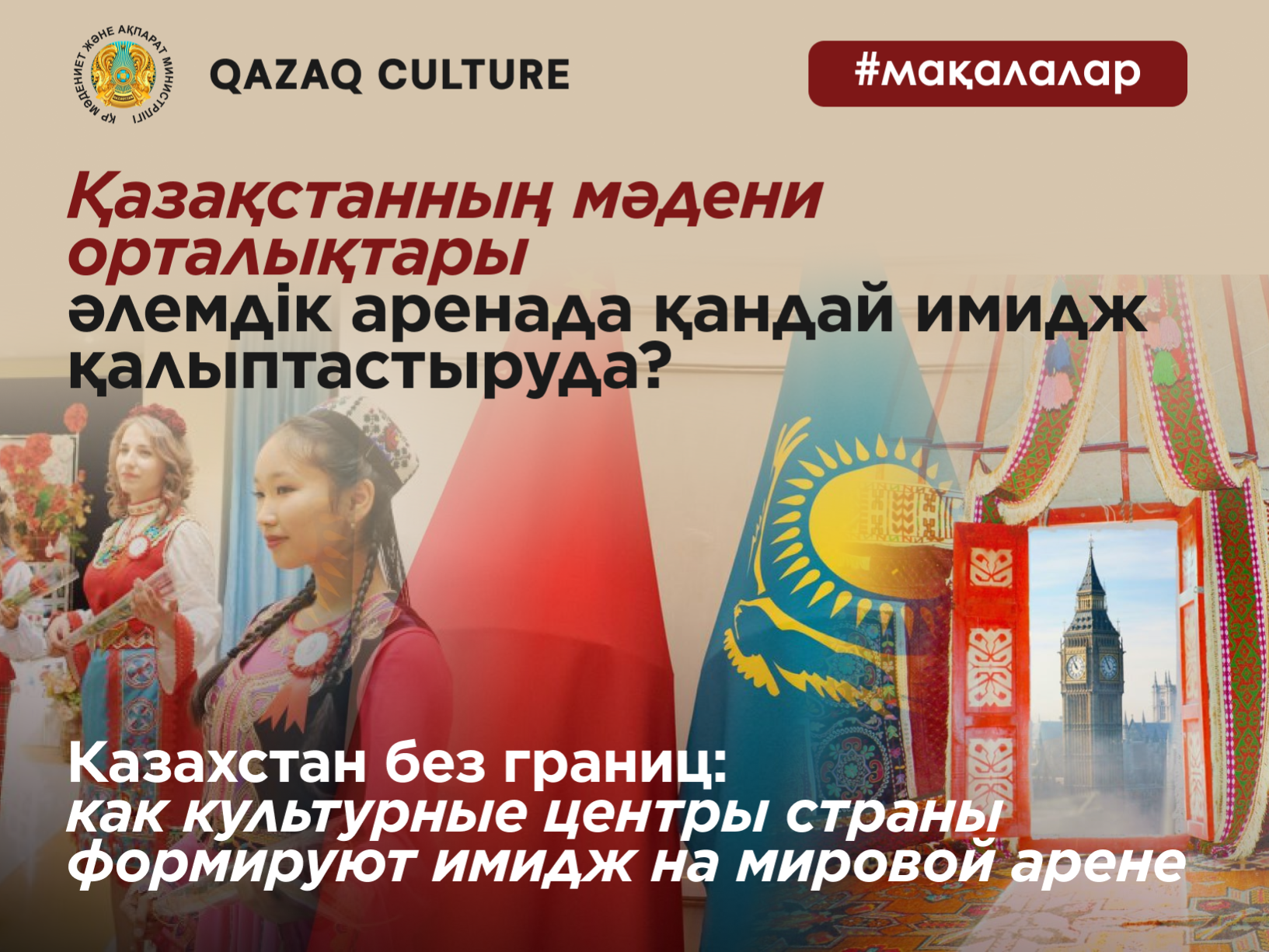Kazakhstan without borders: how the country's cultural centers shape its image on the world stage

Kazakhstan is increasingly using soft power, developing cultural diplomacy - a subtle but powerful tool of international politics. One of the key elements of this strategy has become cultural centers abroad. Through language, traditions, music, literature and gastronomy, Kazakhstan tells the world about itself, building "bridges of friendship" and strengthening the national brand.
Currently, Kazakhstani cultural centers operate in the USA, China, Great Britain, Argentina, Belarus and a number of other countries. Their activities cover a wide range of tasks - from popularizing the Kazakh language and history to holding festivals, exhibitions and educational programs. Let's take a closer look at how exactly Kazakhstan declares itself abroad and what prospects await us in the future.
Cultural Center of Kazakhstan in Beijing
The opening of the cultural center in Beijing is scheduled for 2025. The area of the future space is 700 sq. m, and it will not just be an ethnocenter, but a modern multi-format complex. It will house a concert hall and a cinema hall, coworking spaces and classrooms for language courses, areas for gastronomic evenings and exhibitions. One of the tasks of the center will be to present the tourism potential of Kazakhstan to the Chinese audience, where interest in the countries of the Great Silk Road is growing.
It is worth recalling that China is one of the three main trading partners of Kazakhstan, and the number of Chinese tourists in 2024 exceeded 650 thousand people. Given the growing cultural interest in Central Asia, the center in Beijing can play a strategic role in shaping a sustainable image of the country.
Abai Center in Washington
The Abai Center at George Washington University has become the first official cultural representative office of Kazakhstan in the United States. It hosts lectures on nomadic philosophy, meetings with Kazakh writers and film screenings. The center promotes the study of the Kazakh language, works with American students and holds events with the participation of the diaspora.
It should be noted that more than 20 thousand people from Kazakhstan live in the United States. In the context of growing competition for attention on the global humanitarian map, the Abai Center has become not only a channel for cultural diplomacy, but also a point of community consolidation.
Kazakh Cultural Center in Argentina
A cultural center operates in the city of Rosario, uniting representatives of the Kazakh diaspora and Argentines interested in the culture of Central Asia. Cooking master classes, Nauryz celebrations and folklore evenings are held here. It is important that all events are held in Spanish, which makes Kazakh culture closer to a wider audience.
Despite the geographical remoteness, interest in Eurasian culture is growing in Latin America. In the future, the center may become a platform for humanitarian and educational cooperation with South America.
Kazakh Centre UK in London
The center in London is a lively venue where Kazakh culture is presented through exhibitions, film screenings, fairs and educational courses. The center's projects are supported by both the community and local organizations. In the context of multicultural London, Kazakh Centre UK creates a recognizable and holistic image of Kazakhstan, emphasizing its distinctive features.
The Centre performs not only a cultural but also a social function - it helps new generations maintain contact with their roots, while integrating into the international context.
Abai Centre in Minsk
The Abai Centre for Kazakh Language and Culture at the Belarusian National Technical University is an educational and cultural initiative aimed at strengthening ties between Minsk and Astana. It hosts Kazakh language courses, Kazakh poetry evenings and conferences.
Against the backdrop of strengthening Eurasian cooperation, the centre in Minsk plays the role of a “soft” instrument of rapprochement and humanitarian integration, contributing to the deepening of interstate relations.
Otandastar Project
The state programme “Otandastar” is aimed at strengthening ties with Kazakhs abroad. Through it, cultural centres receive traditional clothing, musical instruments, books, and support in organizing events. This allows not only to preserve the identity of Kazakhs abroad, but also to form a sustainable interest in the country's culture among foreigners.
In conclusion, I would like to add that the cultural centers of Kazakhstan are not just institutions for studying traditions, they are strategic instruments of humanitarian influence that allow the country to speak to the world in the language of art, history and traditions. It is through culture that Kazakhstan will be able to take its rightful place in the global dialogue.
Based on the opinion of experts in this field, investments in cultural diplomacy are becoming not only a symbolic, but also a pragmatic step. Through cultural centers, Kazakhstan conveys its values to the world - hospitality, respect for traditions, the desire for peaceful coexistence and dialogue.
Today, when the role of "soft power" is growing in international relations, Kazakhstan's cultural initiatives are turning into an important factor of sustainable influence. Each center abroad is not just a building or a program, it is a part of the country sent to the world with a message about its openness, rich heritage and modern outlook on the future. The development and support of these platforms is an investment in the international reputation of Kazakhstan, in the formation of a positive image, in fostering interest in the country among new generations - from students to researchers, from travelers to investors.